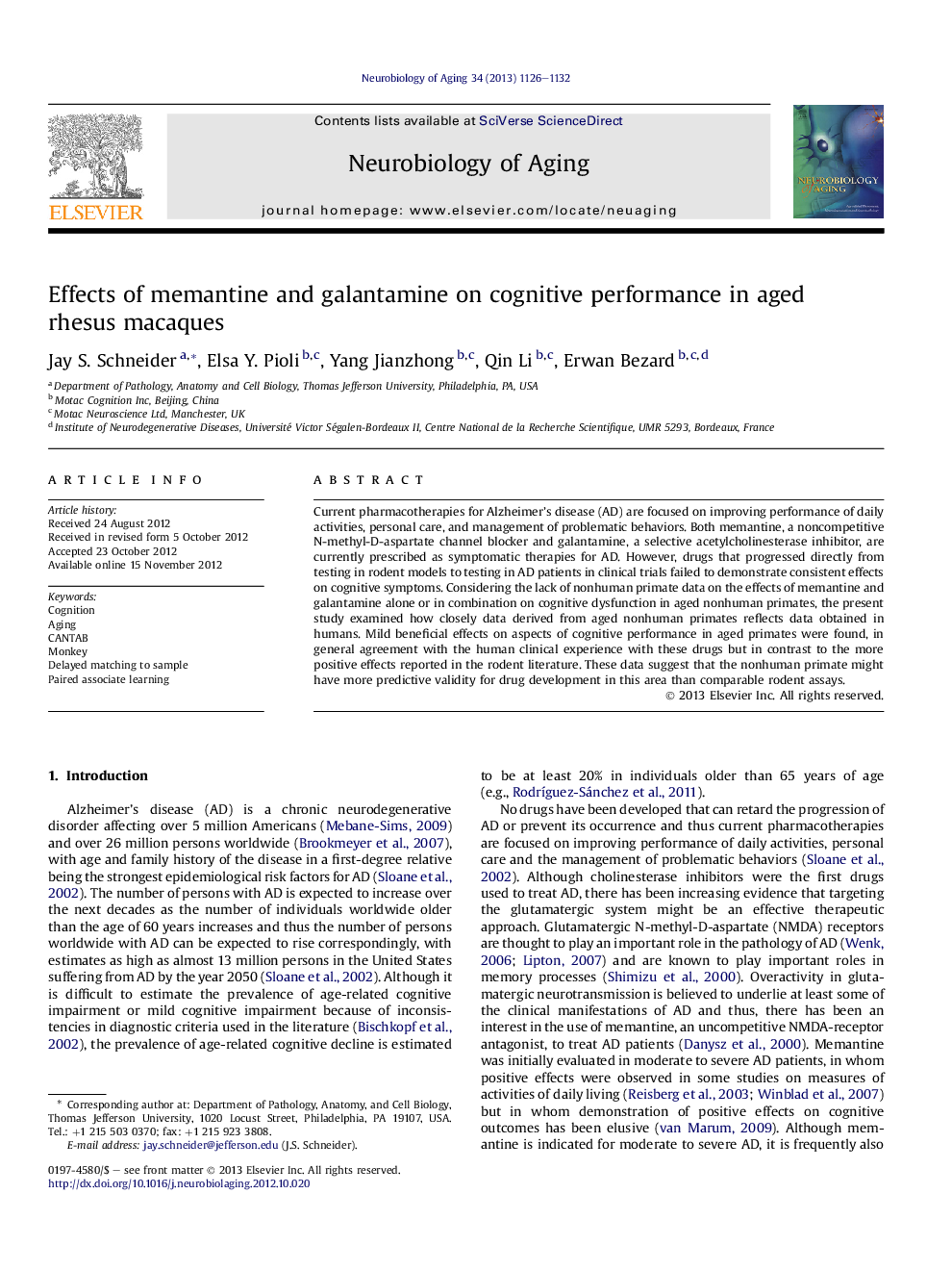| Article ID | Journal | Published Year | Pages | File Type |
|---|---|---|---|---|
| 6807601 | Neurobiology of Aging | 2013 | 7 Pages |
Abstract
Current pharmacotherapies for Alzheimer's disease (AD) are focused on improving performance of daily activities, personal care, and management of problematic behaviors. Both memantine, a noncompetitive N-methyl-D-aspartate channel blocker and galantamine, a selective acetylcholinesterase inhibitor, are currently prescribed as symptomatic therapies for AD. However, drugs that progressed directly from testing in rodent models to testing in AD patients in clinical trials failed to demonstrate consistent effects on cognitive symptoms. Considering the lack of nonhuman primate data on the effects of memantine and galantamine alone or in combination on cognitive dysfunction in aged nonhuman primates, the present study examined how closely data derived from aged nonhuman primates reflects data obtained in humans. Mild beneficial effects on aspects of cognitive performance in aged primates were found, in general agreement with the human clinical experience with these drugs but in contrast to the more positive effects reported in the rodent literature. These data suggest that the nonhuman primate might have more predictive validity for drug development in this area than comparable rodent assays.
Related Topics
Life Sciences
Biochemistry, Genetics and Molecular Biology
Ageing
Authors
Jay S. Schneider, Elsa Y. Pioli, Yang Jianzhong, Qin Li, Erwan Bezard,
